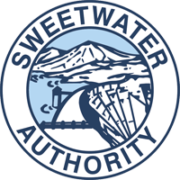On Tuesday, Californians settled three lawsuits against the International Boundary and Water Commission or the IBWC, the binational agency that treats a portion of the sewage-laden water rolling into the U.S. from Tijuana under a treaty between the two countries.
At the crux of the many complaints by the city of Imperial Beach, Surfrider Foundation, and San Diego’s Regional Water Quality Control Board and others was general frustration that the IBWC, which runs an international wastewater treatment plant at the border, wasn’t doing enough to prevent and monitor Tijuana wastewater entering the Tijuana River and the valley on the U.S. side.

 Sweetwater Authority Logo 2019
Sweetwater Authority Logo 2019

